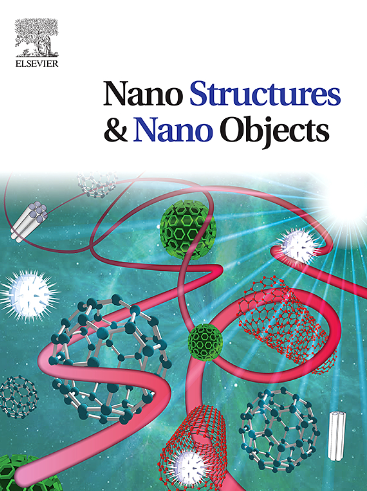含 MOF 嵌入涂层的钢合金耐腐蚀性综述
IF 5.45
Q1 Physics and Astronomy
引用次数: 0
摘要
钢材因其强度高、成本效益高、可用性强、易于制造、延展性好和设计灵活而被广泛使用。然而,腐蚀是一项重大挑战,尤其是在室外环境中,会导致逐渐退化。在钢及其合金上涂覆涂层是保护其免受腐蚀介质侵蚀的有效方法。最近,研究人员探索将金属有机框架(MOFs)用于各种金属合金的保护涂层。MOFs 是由金属离子(或团簇)与有机配体结合而成的混合晶体材料,在有机化学和无机化学领域都受到了广泛关注。它们具有高比表面积、可调结构和功能性、孔隙排列有序、活性位点丰富等显著特点,是很有前途的防腐材料。本综述论文重点介绍基于 MOF 的防腐材料的最新研究进展,并评估其防腐效果。本文章由计算机程序翻译,如有差异,请以英文原文为准。
A review of corrosion resistance in steel alloys with MOF-embedded coatings
Steel is widely used due to its strength, cost-effectiveness, availability, ease of fabrication, ductility, and design flexibility. However, corrosion is a significant challenge, especially in outdoor environments, leading to gradual degradation. Applying coatings to steel and its alloys is an effective way to protect them from corrosive media. Recently, researchers have explored using metal-organic frameworks (MOFs) in protective coatings for various metal alloys. MOFs, hybrid crystalline materials made of metal ions (or clusters) bonded to organic ligands, have gained substantial interest in both organic and inorganic chemistry. They exhibit remarkable characteristics, such as high specific surface area, tunable structure and functionality, well-organized pore arrangement, and abundant active sites, making them promising anticorrosion materials. This review paper focuses on recent research developments in MOF-based corrosion protection materials and assesses their effectiveness in preventing corrosion.
求助全文
通过发布文献求助,成功后即可免费获取论文全文。
去求助
来源期刊

Nano-Structures & Nano-Objects
Physics and Astronomy-Condensed Matter Physics
CiteScore
9.20
自引率
0.00%
发文量
60
审稿时长
22 days
期刊介绍:
Nano-Structures & Nano-Objects is a new journal devoted to all aspects of the synthesis and the properties of this new flourishing domain. The journal is devoted to novel architectures at the nano-level with an emphasis on new synthesis and characterization methods. The journal is focused on the objects rather than on their applications. However, the research for new applications of original nano-structures & nano-objects in various fields such as nano-electronics, energy conversion, catalysis, drug delivery and nano-medicine is also welcome. The scope of Nano-Structures & Nano-Objects involves: -Metal and alloy nanoparticles with complex nanostructures such as shape control, core-shell and dumbells -Oxide nanoparticles and nanostructures, with complex oxide/metal, oxide/surface and oxide /organic interfaces -Inorganic semi-conducting nanoparticles (quantum dots) with an emphasis on new phases, structures, shapes and complexity -Nanostructures involving molecular inorganic species such as nanoparticles of coordination compounds, molecular magnets, spin transition nanoparticles etc. or organic nano-objects, in particular for molecular electronics -Nanostructured materials such as nano-MOFs and nano-zeolites -Hetero-junctions between molecules and nano-objects, between different nano-objects & nanostructures or between nano-objects & nanostructures and surfaces -Methods of characterization specific of the nano size or adapted for the nano size such as X-ray and neutron scattering, light scattering, NMR, Raman, Plasmonics, near field microscopies, various TEM and SEM techniques, magnetic studies, etc .
 求助内容:
求助内容: 应助结果提醒方式:
应助结果提醒方式:


